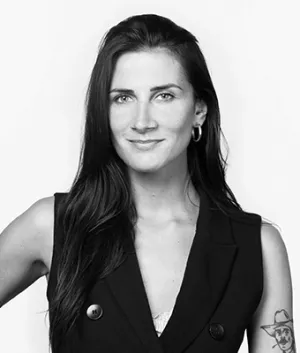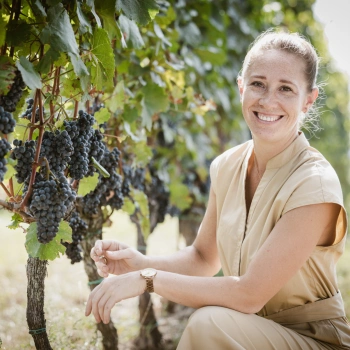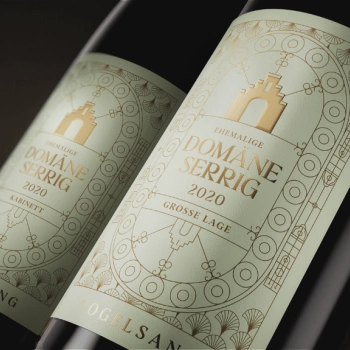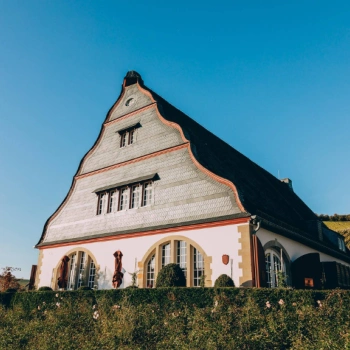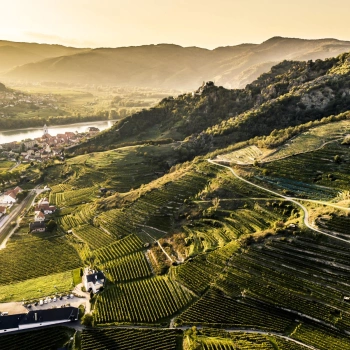
Press Dossier: Weingut Herbert Zillinger
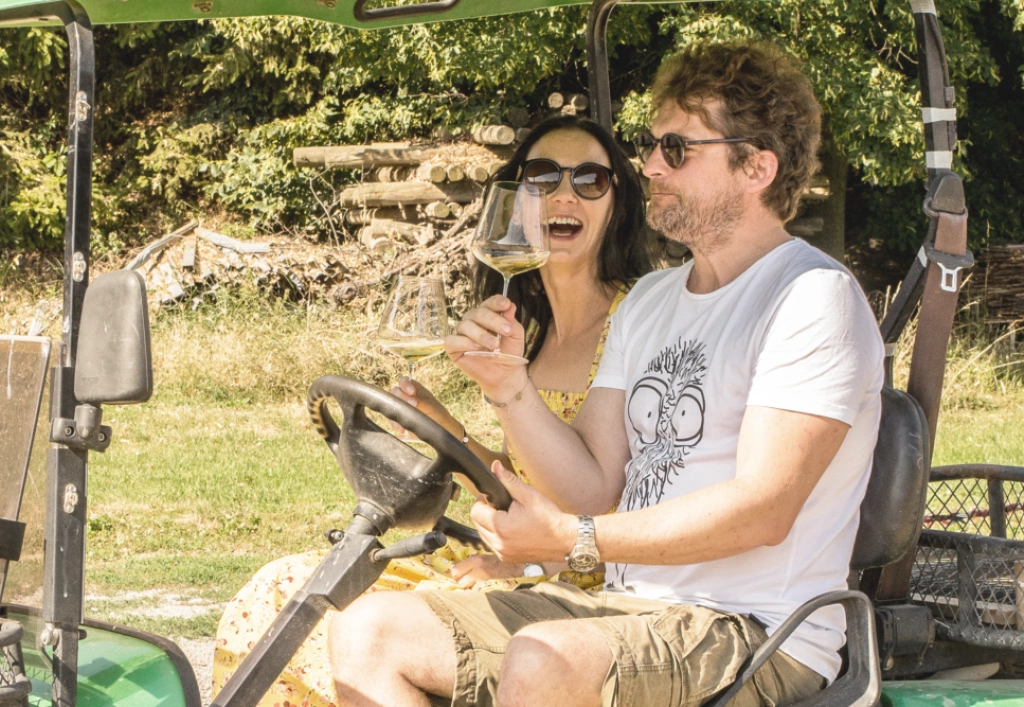
There are Grüner Veltliners... There is Weinviertel Grüner Veltliner... And then there is Grüner Veltliner from Carmen & Herbert Zillinger in Ebenthal. The winegrower couple has been going its own unique way off the beaten path for years now, bothering neither with regional traditions nor about inherited thinking. But the results of this uncompromisingly individualistic approach are not quirky modernist creations – on the contrary – they are Grüner Veltliners of such puristic beauty that they represent a ‘new classic’, so to speak. They are wines that have found themselves – clear in their style, abundantly expressive – pioneers of a new perspective on the Weinviertel and its terroir.
Giving priority to nature
An important element of the Zillinger philosophy involves restoring priority to nature. The two cultivate their vineyards biodynamically, paying attention to a natural balance between the vines and the greenery growing wild. The estate has been certified by respekt-BIODYN since 2016. The natural balance between soil and plants is the prerequisite for optimally ripening grapes without using pesticides, without fertilizers, without irrigation. Last but not least, the choice of the right harvest time is also decisive, because the wines should be ripe, but at the same time fresh, with moderate alcohol content. In fact, Herbert Zillinger’s wines are characterised by a vibrant inner dynamic tension, without being heavy or obtrusively intense. The character of the wine should be shaped by the terroir – this is another Zillinger precept, which he tries meticulously to implement, and also the reason why he avoids interventions in the cellar. Nevertheless, Herbert does not want to describe his wines as ‘idiosyncratic natural wines’; even if they are created completely in harmony with nature, they are rather elegant and have a crystal clear, pure aromaticity. The soil in his vineyards consists primarily of calcareous sandstone and loess. The fine loess-sand (silt) is composed of the silicates quartz, feldspar, mica schist & clay. Cellar work is fully geared towards the goal of preserving the flavour & expression of the vineyard – the site itself – in as unadulterated a fashion as possible. It is almost a foregone conclusion that the wines are bottled unfiltered, which has been the case for all wines since 2020. After Carmen and Herbert had gained sufficient experience from the work of many past years, it was a logical step.
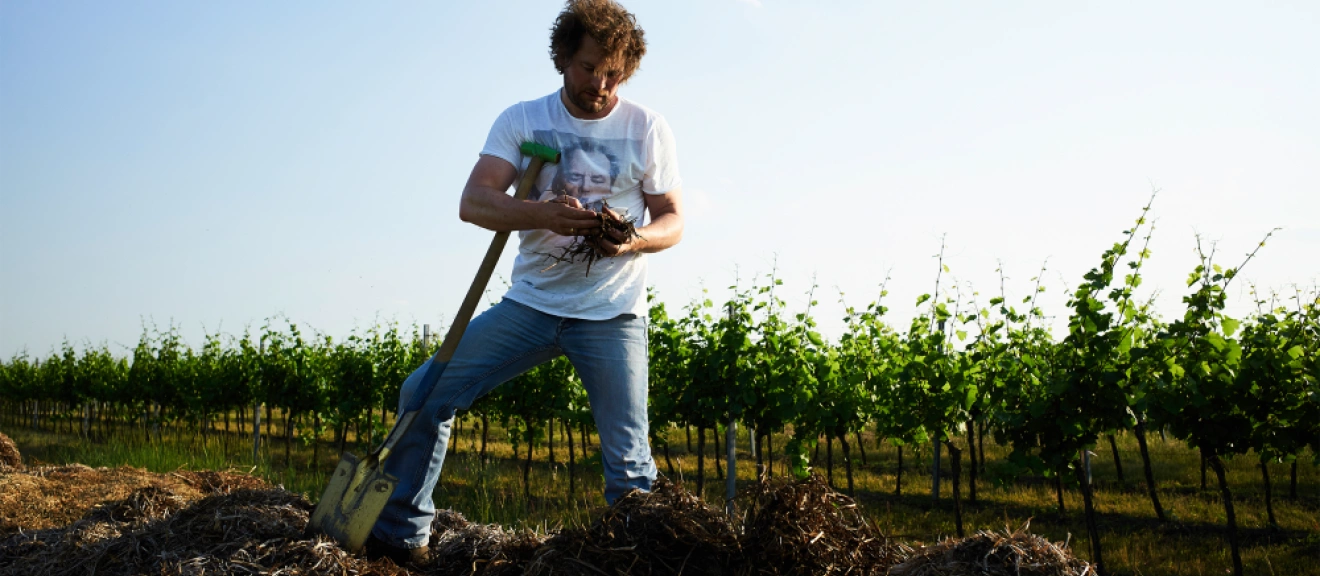
The ‘New Classic’
Zillinger's wines represent the ‘new classic’ style of Grüner Veltliner. The wines are unfiltered, but by no means rough or rustic; rather, showing crystal-clear, healthy fruit, full of vibrant dynamic tension: vital & energetic. Herbert Zillinger describes the ideal he is striving for as ‘light and intense at the same time.’ He continues: ‘We want to vinify wines with moderate alcohol that are nevertheless powerful and rich in extract.’ How is this possible, especially in these times of global warming? Only through precise work and a holistic approach that begins with the cultivation of the soil and proceeds through foliage canopy management to harvesting and healthy practices in the cellar. Zillinger: ‘Well-balanced, vigorous soils enable healthy & well-balanced plants. Only vines that are fit, healthy and vital can produce good, extract-rich grapes.’ With the appropriate gentle pruning, the plants do not invest too much energy in growing foliage, but rather focus on the growth of the seeds in the grapes. The more seeds a grape has, the better for the ultimate balance of the wines. ‘And if the acid is well integrated through sufficient extract and full aroma, a balanced flavour evolves, and the wine gets an easy arc of dynamic tension.’ And then, in the end, choosing the right harvest time is also very important. The grapes must be physiologically ripe, but by no means overripe. ‘I want to harvest the grapes when they are really nice and crisp. Then they are perfectly suited to our purposes.’ In the cellar, says Zillinger, ‘we don’t do anything anymore, really nothing. The wines ferment on their natural yeasts; they only stay on the skins for a short time, but on the lees for a long time. They are racked without pumping, very v-e-r-y gently. We don’t add anything and we take nothing away.’ Zillinger’s wines mature in steel tanks or in large wooden casks. Concrete eggs are also becoming increasingly interesting for Zillinger. ‘I am convinced that neutral vessels, in which a gentle exchange of air takes place, are particularly good for the wines.’ To guarantee stability, a very small amount of sulphur is added, but so little that it cannot be tasted or sensed (around 10 milligrams per litre). Finally, the wines are bottled without filtration.
2020, the year of change & innovation:
The product line has been streamlined. In the future, the focus will be placed even more on Grüner Veltliner. Some of the wines have been given new names: Hohes Eck became Hirschenreyn and Vogelsang was re-christened Kalkvogel. All wines are bottled unfiltered. ‘2020 was exactly the right time to make these changes,’ says Herbert Zillinger. ‘The pandemic made us think about things even more. We’ve really questioned everything we’ve done so far. And then made our decisions with absolute conviction. ’
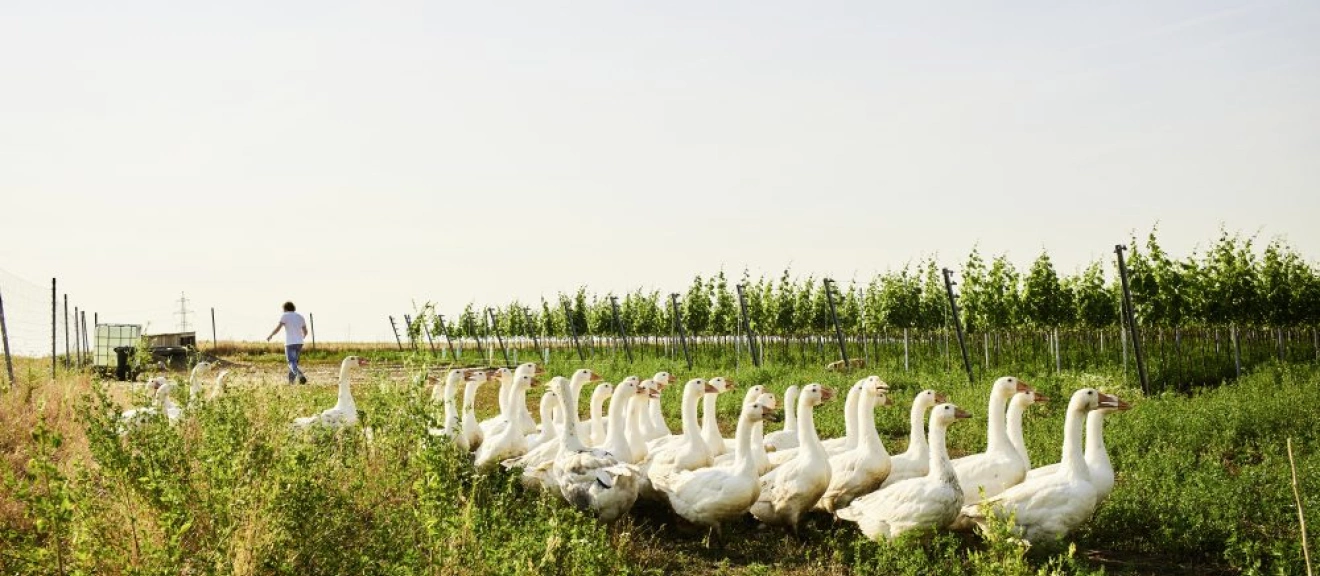
Standing up to global warming – wines in balance
The climate is indeed getting warmer. After several years of hot, dry summers, growers in the Weinviertel are starting to think (worry) about what lies ahead. What will happen with Grüner Veltliner when climatic conditions prevail in Austria like those that were typical for southern Italy half a century ago? Many folks are starting to put their money on other grape varieties... For Herbert Zillinger, this is barking up the wrong tree. He is convinced of the opposite: ‘If you treat the Veltliner grape properly under these new climatic conditions, it will yield extraordinary wines.’
The 2017 vintage proves everything
The Weinviertel grower has impressively demonstrated his point of view, most clearly in 2017, the hottest vintage since Herbert & Carmen began to vinify wines. It was a stressful year, full of uncertainties. But in the end, wines of stunning beauty arrived in the bottle. Especially, the 2017 Grüner Veltliner Radikal sparked enthusiasm. Zillinger himself says: ’One of the loveliest wines I have ever bottled.’ And adds: ’Since then, I’ve become a little more relaxed about global warming, because I know that my approach works.’ The magic word that makes such results possible is balance. If soils retain their natural liveliness, then the plants growing on them will be healthy & vital, will have adapted to the vineyard and, to a certain extent, can find their way around without much human assistance. ‘The plants are moving away from vegetative growth towards generative growth,’ explains Zillinger, ‘more frequently, we no longer have to do any foliage canopy maintenance in spring & summer.’ If the canopy is loose enough, the plants receive just the right amount of sunlight. Which leads to the grapes developing a good number of seeds. Zillinger attaches particular importance to this: ‘The mucilaginous flesh around every grape seed is the most flavourful. The more seeds that are formed, the better.’ A greater quantity of seeds also leads to higher acid values. Fine acidity coupled with full ripeness of the grapes, plus an intense aroma – this is how wines find the balance that gives them freshness & finesse with moderate alcohol content, even in hot years. This type of vineyard practice has borne substantial fruit from the 2016 vintage onwards. The 2017 vintage proved that Grüner Veltliner can be particularly lovely & expressive even in hot years. ‘I would suggest that Grüner Veltliner can cope wonderfully with drought & heat – if the conditions are right for it. If not, then it actually becomes bitter, thin & dreadful.’ But otherwise, if circumstances coöperate, the vineyards do not need irrigation. Many other winegrowers are now using this means to survive the arid summers. For Zillinger this is out of the question: ‘For me this is no longer a wine expressive of its origin. One result of irrigation is that the roots wander into the topsoil instead of developing into the layers deeper down. Terroir also means that you have to taste the difference between dry and wet vintages.’
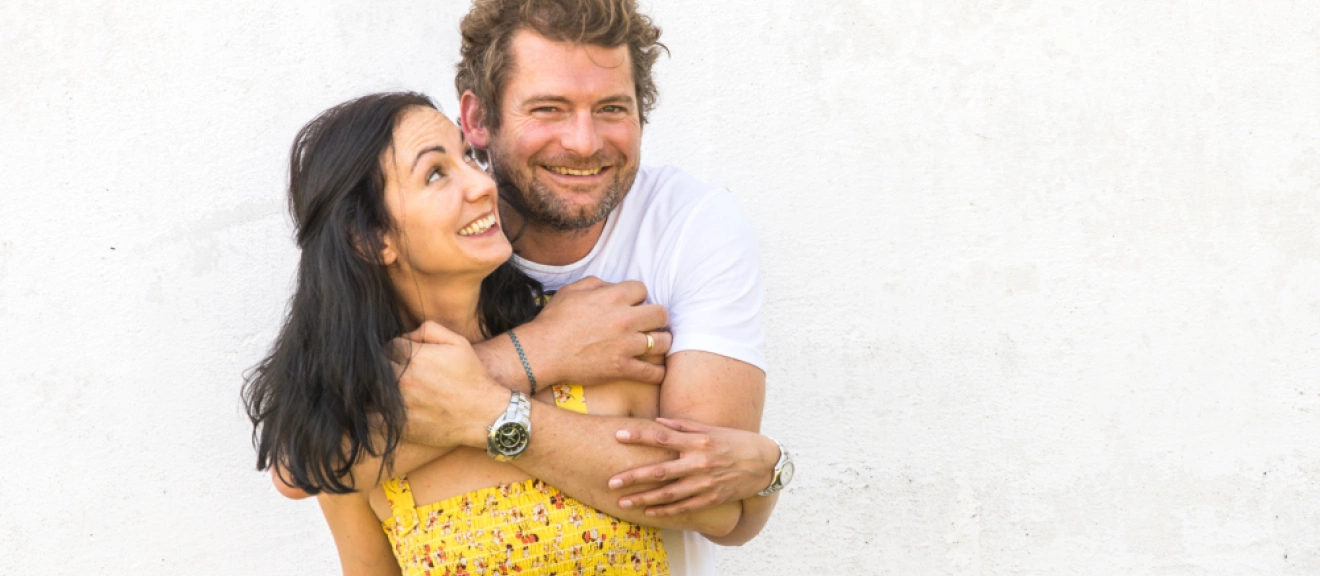
The new assortment
Streamlined, with Grüner Veltliner in the foreground – this is how the assortment of wines is presented as of 2020. The balance that Carmen & Herbert strive for in their wines will also be reflected in the product lines, with their wines now organised into four series:
1) Neuland Welschriesling & Grüner Veltliner
These are wines that are juicy and simply fun to drink. They radiate pure joie de vivre and invite the taster to explore them in a leisurely fashion
2)Horizont Chardonnay & Grüner Veltliner
These wines are the house’s calling card – an invitation to all wine lovers to broaden their horizons. The wines speak clearly of their origins and represent their grape varieties in ways that go beyond the usual limits.
3) Erdkreis
The vineyard, the soil & the terroir characterise these wines, plus the unmistakable signature of the winegrower. The three Grüner Veltliners in this category typify the ‘New Classic’. Three revelations. Hirschreyn – Grüner Veltliner This is the coolest of the Zillinger vineyards, a loess slope facing north, on the edge of the forest. ‘Here the wind whistles, the entire day through.’ (Zillinger). The wines are savoury in character; very lively, very vibrant. Weintal – Grüner Veltliner Also a cool and wind-swept site. The loess soil here is very deep and rich in limestone, with a top layer of humus. These old vines produce a wonderfully ripe, powerful Veltliner with a marvellously cool elegance and minerality, year in and year out. The particularly fresh microclimate here gives the wines their fine aromas & complexity. Kalkvogel – Grüner Veltliner The soil in this vineyard – Vogelsang – is rich in limestone and light in texture; only the topsoil is composed of loess, sand & sandstone. The wines are very delicate, mineral-driven & savoury, with a wonderful elegance – they are real long-distance runners.
4) Edition ‘Z’. (Crossing borders)
Edition Z is the qualitative spearhead of the wine estate. Here the winegrower shows restraint up to his limits, leaving the stage entirely to the terroir. Whether sand, sandstone, lime or loess, the expression of the soil can be found in the wine. These selected sites in which the grape variety forms the vehicle for the terroir... Herbert Zillinger’s signature is unmistakable, but he acts behind the scenes, gently guiding the wine down nature’s path. Edition Z wines stay on the skins longer and are only bottled in the best vintages. Radikal – Grüner Veltliner This wine is full of energy and virtually dances on the palate. Aromas of quince, meadow flowers, fresh bread crust and a hint of beeswax caress the nose. Radikal shows enormous elegance, with plenty of depth and length. Elementar – Grüner Veltliner Here Herbert Zillinger explores the tension between power & ease of expression. The wine is serene in character, showing aromas of acacia blossoms, rosemary and basil. Thrust & opulence develop on the palate; Elementar is juicy & earthy, with cool minerality. Profund – Traminer Traminer can also be like this: old vines & stringent selection yield a wine with an almost wild herbal spiciness. A fine scent of roses, marshmallow and lychee emerges from the glass, while on the palate the wine is simultaneously lively, calm & composed. A wine for thoughtful hours, for philosophising, for slowing down the passage of time. New: The Freestyle series Popcorn & Foxy, the two new wines in the new Freestyle line, which the Zillingers themselves call ‘their playground’. Here, it is solely intuition that makes the decisions. Vivacious wines, with a lot of lively flow across the palate. Fermentation on the skins, bottled unfiltered. Or to put it another way: wines to surprise you.
A glance into the future
With the focus on balance & origins, Carmen & Herbert has found their path. But Zillinger is convinced that development has only just begun. ‘When you’ve found out how to improve quality, the truth is that new avenues open up every year.’ Carmen & Herbert Zillinger have already identified the ways that they want to go over the next few years: Biodynamics means constant learning, observation & readjustment. For example, the Zillingers want to improve their compost management. In addition, their work with animals is to be expanded – sheep in the vineyards are already keeping the greenery nicely cropped. Last but not least, all wines are currently bottled in screwcaps, including the top selections. ‘It is the ideal closure for us; it means we have the oxygen supply under control, which is important because we use extremely little sulphur. But we also keep our eyes and ears open when it comes to the subject of closures – and of course, we remain open to future developments.’ Climate change does not stop at the borders of the Weinviertel, either. Many Weinviertel growers are already thinking about replacing their Veltliner vines with other varieties. Carmen and Herbert Zillinger think this is the wrong way to go. One wants to remain true to Grüner Veltliner. And what’s more: in the future, it will be even more of a focal point for their work.
